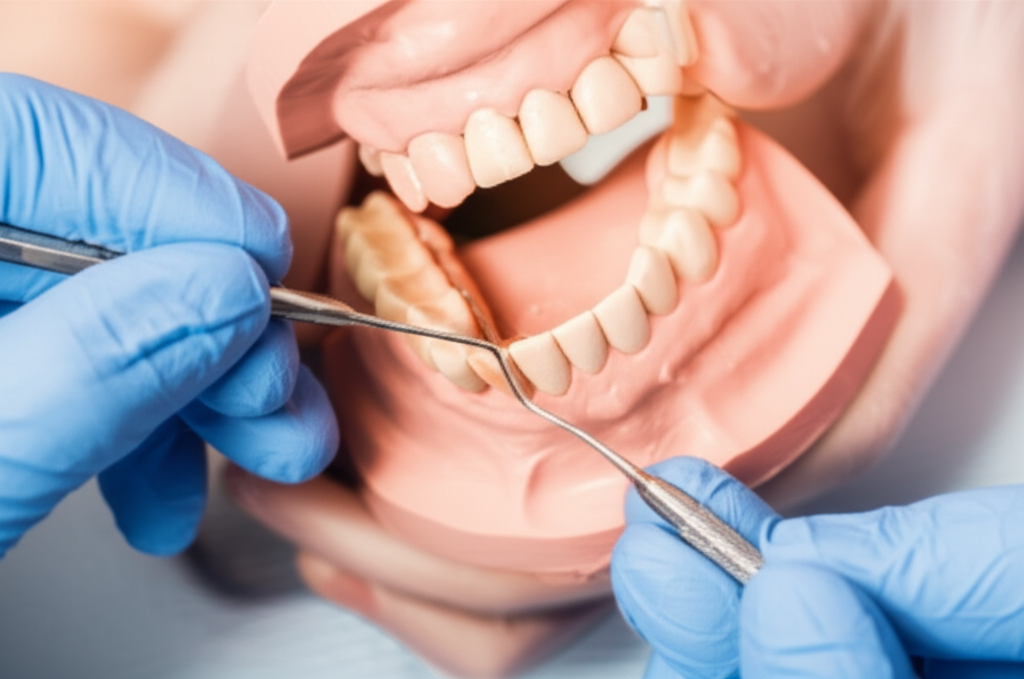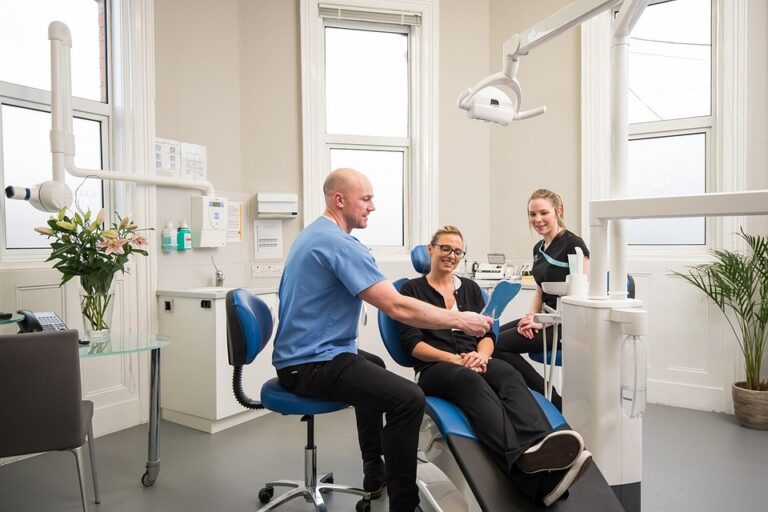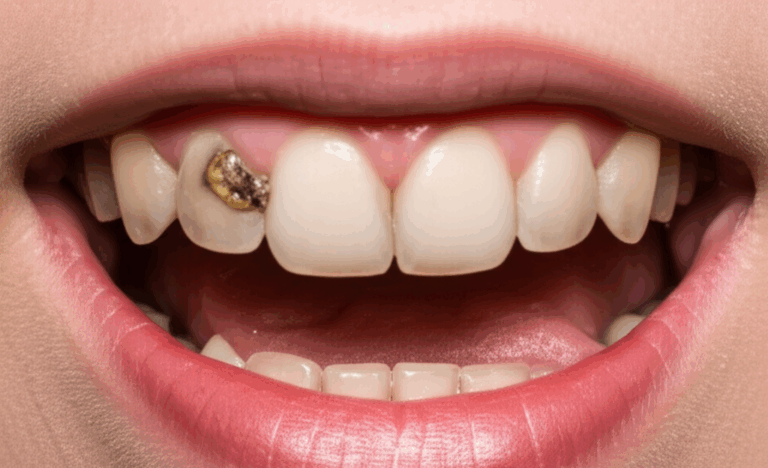
From RDH to DDS: Your Complete Guide to Becoming a Dentist as a Dental Hygienist
That feeling of curiosity, the one that makes you wonder if your work as a dental hygienist can turn into being a dentist, isn’t odd at all. Really, you’re not the only RDH who’s thought, “Can I put down my scaler and pick up a dental drill? What will it take—and is it worth it?” If you’re asking yourself that, you’re in the right spot.
Everyone’s path is different, but this one really is possible. Let’s break it down with honesty and helpful advice—so you can see if moving from scrubs to that white coat is the right move for you.
In This Article
- Why Become a Dentist After Being a Dental Hygienist?
- Step-by-Step Guide: How to Go from RDH to DDS/DMD
- Main Challenges (and Ways RDHs Can Tackle Them)
- How Your Dental Hygiene Experience Helps You
- Salary, Job Outlook, and Comparing Careers
- Should You Take This Path? (Self-Check)
- Wrapping Up: Go for Your Dental Goals
- FAQs: Straight Answers to Common Questions
Can a Dental Hygienist Become a Dentist? (Yes—Here’s How and Why It Might Be Right for You!)
Let’s start with the main question: Can a dental hygienist become a dentist? Yes, you sure can. It’s very possible—it’s even becoming more common in the dental world.
You already know teeth. You’re used to working with patients. And you understand what goes on in a dental office. That puts you in a great spot if you want to go back to school and become a dentist.
Still, you might be asking: How hard is it? How long does it take? Will my hygiene classes help me? And, maybe most important, will it be worth all the effort and money? We’ll answer all these, with clear steps, honest truths, and real advantages because of your background.
Why Become a Dentist After Being a Dental Hygienist?
Let’s start with “why.” You’re already good at patient care, checking gum health, and teaching about brushing and flossing. So why move up to dentist?
Top Reasons:
- More Things You Can Do: As a dentist, you make the big decisions, do the fillings and other fixes, and plan out patient care.
- Better Pay: Dentists usually make about twice what hygienists do. (Numbers coming up soon.)
- Run Your Own Office: Dentists can own or be partners in dental clinics.
- Do More for Patients: You help make big choices, offer more treatments, and can do things like braces, work with kids, surgery, and more.
- Feel Good About Your Work: A lot of hygienists move up because they love learning, want to lead, or want a business to call their own.
But remember, more duties also mean more stress, more years in school, and big tuition bills. Your drive and RDH experience might help you get over those bumps.
Step-by-Step Guide: How to Go from RDH to DDS/DMD
Ready to see the steps from beginning to end? Here’s your simple guide, made for dental hygienists (RDHs).
1. Meet the School Requirements & Get Good Grades
First, look up what the dental schools you want to go to need. Most want:
- Main science classes: Biology, Chemistry (general and organic), Physics, Biochemistry, and Microbiology.
- Other classes: Math, English, and sometimes Psychology.
A lot of dental hygiene programs include some of these—but not all. If you’re missing some (especially if your degree is only an associate’s), you might need to take extra college classes.
Quick tips:
- Try for a science GPA of 3.5 or better.
- Not all hygiene classes will count—each dental school decides what’s okay.
- Refresh your transcript, especially if you finished school a while ago.
2. Take the Dental Admission Test (DAT)
This required test is for everyone who wants dental school, RDHs included. It’s like the MCAT for med school, but for dentists.
DAT includes:
- Science (biology, chemistry, organic chemistry)
- Perceptual Ability (seeing shapes and spaces)
- Reading
- Math
What’s good: Most students score 20–21 out of 30.
How to study:
- Start studying months before, especially if you’ve been out of school.
- Use online practice tests and courses made for people coming back to school, like hygienists.
3. Get Dental Experience and Show It Off
This is where your RDH work helps most!
- Shadowing: Dental schools want you to watch a dentist or even specialists. Your hygiene hours are good—but make sure you also see what dentists do with fillings, surgery, and more.
- Volunteering: Help out with dental work in your community. Dental schools like applicants who serve people who need help the most.
- Research (extra): Not a must, but helpful for certain dental schools.
4. Do the Application (AADSAS)
You apply using the American Dental Education Association’s AADSAS site.
- Personal Statement: Tell why you want to be a dentist. How does your RDH time make you special?
- Recommendation Letters: Get letters from dentists you shadowed, science teachers, and maybe a boss from your hygiene job.
- Which Schools: Look for dental schools known to welcome people who already work as hygienists or other dental jobs.
5. Do Well in The Interviews
Interviews can be regular questions or MMI (short, fast questions about skills, talking, and how you decide things).
Get ready by:
- Practicing answers to common questions: Why dentistry? How will you do with going back to school? What does your RDH background give you?
- Use stories from your hygiene days; show you’re good with patients.
- Show you’re grown up and determined, with real examples from your work.
6. Make It Through Dental School
Dental school is tough. It’s four years—two years of science and labs, two years of working on real patients.
Your hygiene background will help most with:
- Knowing mouths and gum health
- Talking to patients
- The basics of mouth care
But you’ll need to work hard on harder science and many new topics.
7. Get Your License
To be a dentist, you need to:
- Finish a dental program (DDS or DMD)
- Pass the National Dental Board test (INBDE)
- Pass your state’s tests
Then you can work for someone, get your own office, or get more training (like braces, kid’s teeth, root canals, and more).
Main Challenges (and Ways RDHs Can Tackle Them)
Let’s get real here. Going from RDH to DDS is not easy. Many hygienists worry:
How Long Does It Take?
Think 4 years for dental school (after your bachelor’s), plus time for classes you still need. You could be done in about 6 years after high school if you already have your bachelor’s, but most people take about 8-10 years in total.
How Much Does It Cost?
Dental school costs a lot—anywhere from $39,000 to $90,000 a year. Most new dentists finish with over $300,000 in school debt. There is help like loans, grants, and scholarships. Don’t let cost alone stop you—but know the numbers.
How Hard Is Dental School?
Harder than hygiene school, especially the start. You’ll see hard science classes, lots of pressure, long hours, and tests all the time. Habits from hygiene school will help.
Does Age Matter?
Not really. Many dental schools like older students for their experience and being mature.
What About Family and Work?
Balancing kids, work, and hard classes is the top worry for people going back to school. If you have a family or job, get help and support early. Some people work as hygienists during dental school, but most find it too much.
How Hard Is It to Get In?
Dental schools are picky. The acceptance rate is about 50% for all students. Your patient care and skills make you stand out—but high grades and test results still matter.
How Your Dental Hygiene Experience Helps You
Why do RDHs do well in dental school? Because you already talk “teeth.”
Your Advantages:
- Good with Patients: RDHs know how to talk to people and explain dental things clearly.
- Hand Skills: You’re already good with dental tools and have a steady hand—that helps in early dental school labs.
- Know Your Stuff: With your knowledge from hygiene, first-year dental classes might seem easier.
- Connections: You know dental offices, local dentists, maybe even some instructors.
- Grown Up: RDHs returning to school are often more focused, organized, and ready for the work.
Use these when you apply, interview, and later when you help others do the same!
Salary, Job Outlook, and Comparing Careers
Let’s talk money, since this is a big decision.
Salary Comparison
| Career | Median Yearly Pay (2022) |
|---|---|
| Dental Hygienist | ~$81,400 |
| General Dentist | ~$163,220 |
(Source: U.S. Bureau of Labor Statistics)
Dentists make almost twice as much as hygienists, and even more if you own a practice or pick a specialty.
Job Outlook
- Dental Hygienists: Jobs will grow by 7% (2022–2032), faster than average.
- Dentists: Jobs will grow by 6% (2022–2032)—average for healthcare.
Both jobs are steady and should be around for a long time.
Is It Worth It?
- Dental school takes money and years, but most dentists are happy with their jobs and earning power. Owning a clinic or going into a specialty means you can earn even more.
Should You Take This Path? (Self-Check)
Before you apply, ask yourself:
Is it about money, moving up, a love of teeth, or something else? Be honest.
If you’re saying yes to most, you might be ready. If not, try other dental careers—like teaching, office managing, sales, or research.
Wrapping Up: Go for Your Dental Goals
Here’s the bottom line: Becoming a dentist after working as a dental hygienist is doable. You bring real skills—care, hand skills, and knowing patients—that most others don’t have.
Yes, it’s a long road. Yes, dental school is tough. But lots of people before you—older students, people with families, career switchers—have done it.
Remember
- Dental hygienists make great dental school students. Your real-world experience, caring, and age can be a big plus.
- Plan it out: get your science classes done, do well on the DAT, gather good recommendations, and make your story stand out.
- Get ready for four years (or more) of hard science, tough lessons, and money spent—but also a bigger impact, bigger pay, and a job where you lead.
- Think about all your options—general dentistry, specialty, or even teaching.
- Start now: look at what classes you need, talk to a pre-dental advisor, and shadow local dentists to learn more.
The dental world needs caring, skilled leaders like you. If this feels right, get started and see where it takes you!
Frequently Asked Questions (FAQs)
Q: How long does it take for a hygienist to become a dentist?
A: After your bachelor’s (or needed classes), dental school is four more years. For most, it takes 6 to 10 years after high school.
Q: Do dental schools like dental hygienists more?
A: Not a sure thing, but many schools like your work experience and how you handle patients. It’s a plus if you also have good grades and DAT scores.
Q: What GPA and DAT scores do I need?
A: Most students who get in have GPAs around 3.6 and DAT scores of 20–21. Science grades count a lot.
Q: Can I work as a hygienist during dental school?
A: Maybe, but rarely. Dental school is super busy, so most people just focus on school.
Q: What’s the hardest part for RDHs wanting to be dentists?
A: It’s going back to hard classes and balancing life with school.
For Learning More
If you want to see what dental specialties are out there, check out this crown and bridge lab resource. Want to learn about dental prosthetics or dentures? See how a removable denture lab can help.
Curious about how your mouth affects your whole body? Here’s a guide on teeth health.
Everyone’s story is different. But plenty of RDHs have made the leap—and done well. If you’re not sure, talk to someone who did it. You’ll probably hear, “Best choice I ever made.”
So, take time to think, ask questions, get advice—and most of all, believe in your own abilities. You can write the new story of your career!








